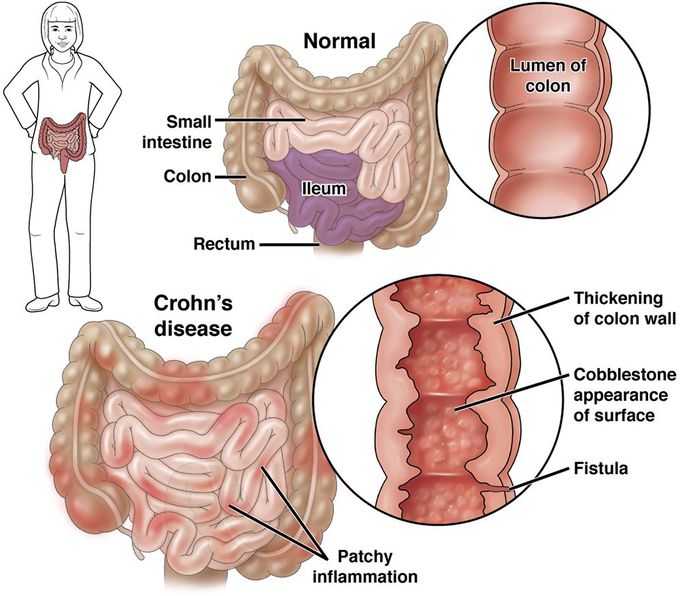


How is Crohn’s disease managed or treated?
Treatment for Crohn’s disease varies depending on what’s causing your symptoms and how severe they are for you. In children, the goal in treatment is to induce remission (the time between symptom flare-ups), maintain remission and manage any complications of Crohn’s disease over time. Your healthcare provider may recommend one or more of these treatments for Crohn's disease: Antibiotics: Antibiotics can prevent or treat infections. Severe infections can lead to abscesses (pockets of pus). Or they can cause fistulas (openings or tunnels that connect two organs that don’t normally connect). Antidiarrheal medication: Prescription medications like loperamide (Imodium A-D®) can stop severe diarrhea. Biologics: These medications include monoclonal antibodies to suppress the immune response. Bowel rest: To give your intestines a chance to heal, your provider may recommend going without food or drink for several days or longer. To get the nutrition you need, you may receive intravenous (parenteral) nutrition. Only drink a prescribed liquid or have a feeding tube during this time. Corticosteroids: Cortisone, prednisone and other corticosteroids ease inflammation brought on by autoimmune disease. Immunomodulators: These drugs calm inflammation by suppressing an overactive immune system. They include azathioprine and cyclosporine. Surgery: Surgery won’t cure Crohn’s disease, but it can treat complications. You may need surgery to correct intestinal perforations (holes), blockages or bleeding.

